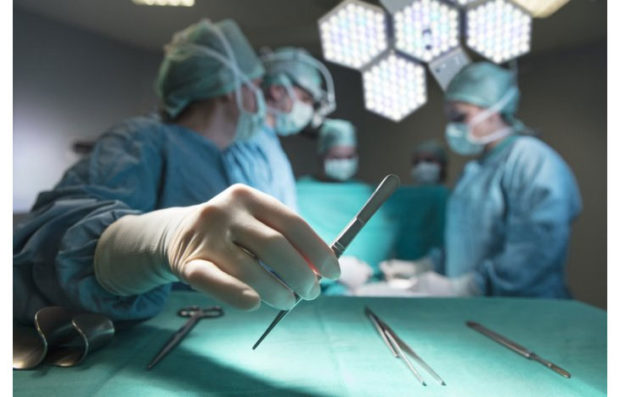
Are single-use devices the future of healthcare?
Team Udayavani, Jul 6, 2021, 2:46 PM IST

Credit: iStock Photo
Pandemics are inevitable, but the intensity of any outbreak illustrates the need for newer solutions. Pandemics also expose widening gaps in healthcare, mapping the need for smarter tools to avoid risks.
In the case of coronavirus, since the first case was reported in Kerala in January 2020 to a recent analysis by a ‘Department of Science and Technology (DST)’ panel claiming, “about 60 percent Indians have been infected so far”. In this scenario infections during treatments can be an added challenge. Therefore, what we need at this point are medical technologies that promise to curb the risk of infections. This is where the role of single-use medical devices comes into play.
We need to understand the critical contribution made by single-use devices as these devices help in reducing the chances of recurring infections. From needles and syringes to the devices used in diagnostic procedures like endoscopy, we need to be double sure that our tools are safe and hygienic.
Why Single-used devices make a difference
With no regulations in place for single use / reusable devices, and the Drugs and Cosmetics Act (Rule 65.17) only mentioning that the devices must be used as per label instructions, there is a wide reprocessing of devices in India. This frequent usage of reprocessed devices causes a greater incidence of clinical infections, as the usage of reprocessing agents still leaves a scope of poor patient outcomes. As per studies, forty-five times out of hundred, clinicians tend to skip the cleaning process which causes failure of disinfection. This breach in patient safety does not only hamper the treatment but causes a cost burn. Equipment like Biopsy Forceps, Snares for Tissue Resection, Tube sets (Inflow and Outflow), Tissue Scissors & Staplers, Dilatation Balloons, Sclerotherapy Needles, etc. are disposable and are promising for reducing infections. For example, Endoscopic Balloon Dilation, the main modality for the process, if not properly cleaned and reprocessed can be very hazardous for the patients. To avoid such risks, it is highly recommended for hospitals and clinicians to avoid the reuse of single-use devices.
Understanding the Use: Single-use or Reusable
For decades, experts have juggled between the two choices. While single-use devices are used on one patient during only one procedure and then disposed; reusable options are reprocessed after any surgery or procedure which includes sterilization, cleaning, and disinfecting. The most important factor for the increasing use of single-use equipment is the reduced risk of contamination and infection. There is always a risk that comes with using reusable options, for instance, hospital-acquired infections or HAIs along with an increased risk of cross-contamination. On the other hand, all single-use devices are individually packaged and sterilized.
When we compare the two, after patient safety, the second major concern is the cost. Now, as per reports, the cost of repair for an instrument is roughly £50. Single-use instruments rule out this cost. Overall, the repurposing of medical instruments comes with its own added ‘hidden’ cost. From personnel training to cleaning supplies, repair and replacement, tracking, equipment, decontamination to sterilization processes, there are many additional costs that come with repurposing. These costs are even higher in case of expensive and complicated medical devices. Over the years, surgical site infections were responsible for not only increasing cost, but also mortality and morbidity related to surgical operations. Hence, came the need for single-use methods.
How far can we rely on reprocessed instruments?
When the cleaning of reused devices is inadequate, it results in the retention of blood, tissue, and other biological debris (soil) in some medical devices. When the debris remains on the device, microbes survive through the subsequent disinfection or sterilization process, which could then lead to HAIs. For instance, in the case of reprocessing of endoscopes, there are many steps like cleaning, rinsing, drying, high-level disinfection, among others. The instruments are heat sensitive and require special sterilization, which, if contaminated, can lead to infections. Studies suggest that with 45% of the endoscope use, practitioners skip important steps in the cleaning process, which can cause the failure of high-level disinfection. These challenges have been met by single-use endoscopes which negated the use of repurposing. They are disposable, substantially reduce the risk of infection, reduce the cost on investment without the need to regularly upgrade the instruments.
In the post-pandemic world, our healthcare providers will have to work with solutions that promise minimum contamination and better patient outcomes. While reusable instruments come with their own promise, if reprocessed carefully, technology has enabled us to use smarter tools like single-use medical devices. In the coming years, innovations and their use will be able to create a seismic shift in making effective diagnosis available with tools that promise perfect results. Are we ready to embrace the change?
The article is co-authored by Dr. Ubal Dhus, Gastroenterologist at Apollo Hospital,, Chennai and Dr. Raj Vigna Venugopal, Senior Consultant and Head of the Department, Manipal Hospitals, Bangalore.
Udayavani is now on Telegram. Click here to join our channel and stay updated with the latest news.
Top News
Related Articles More

Don’t blame Dubai’s freak rain on cloud seeding

What role does genetics play in breast cancer? How can genetic testing help with early breast cancer diagnosis?

From Orbit to Earth: ISRO’s Contributions to Understanding Himalayan Glacial Shifts

Modi Supports Philippines with BrahMos Missiles in China Sea Dispute

LS 2024: Yet another face-off between seasoned politicians Kota Srinivas Poojary & Jayaprakash Hegde
MUST WATCH
Latest Additions

Corporate earnings, US Fed interest rate decision to drive markets in holiday-shortened week: Analysts

Siddaramaiah, DKS protest against Centre’s ‘injustice’ in release of drought relief to Karnataka

Delhi Congress Chief Arvinder Singh Lovely resigns, cites disagreement with party’s AAP alliance

Amid row, RSS chief Mohan Bhagwat backs reservations

Amid row, RSS chief Mohan Bhagwat backs reservations

























